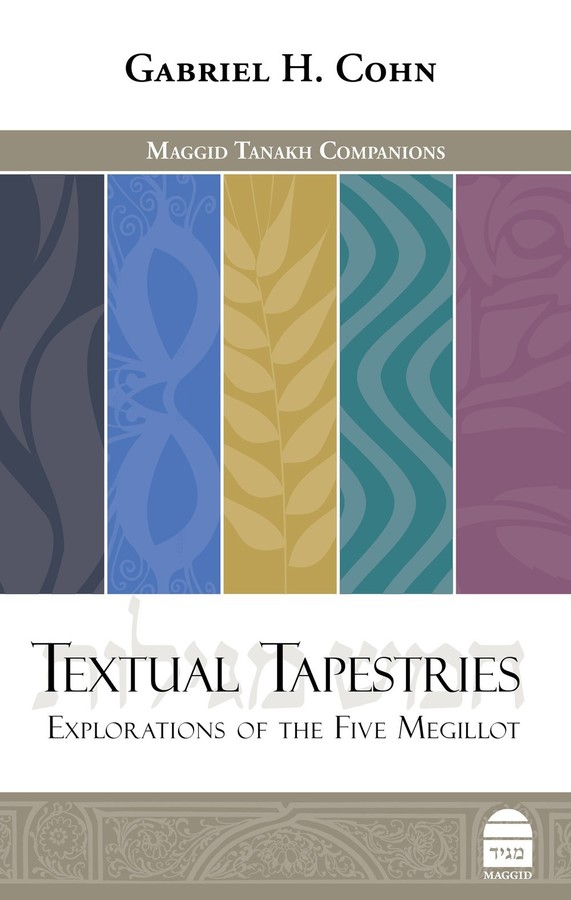The continuing war against Amalek
This coming Shabbat is called Shabbat Shira inasmuch as the Torah reading is Parashat Beshalach whose centerpiece is Az Yashir, the Song of the Sea. Also, this Shabbat is Tu B’Shevat, the 15th Day of Shevat, the annual Jewish Arbor Day. What is least known of this Shabbat is the reading at the end of the Torah selection on the aggression that Amalek committed against the newly liberated and militarily defenseless Jewish people.
It is this later event that will be the focus of this week’s essay.
Recently, the Maggid Tanach Companion series published its latest volume, “Textual Tapestries: Explorations of the Five Megillot,” by Dr. Gabriel Cohen of Bar Ilan University and longtime head of Machon Gold in Jerusalem. Within this volume is to be found a series of seven essays dealing with Megillat Esther, the centerpiece of the ritual observance of Purim, scheduled just four weeks from now.
Among these essays is one entitled, “Continuing the War Against Amalek.” This excellent analysis of that sad and perfidious action, a Pearl Harbor-like sneak attack upon the Jewish people, goes to the very heart of why this event plays such a serious role in our history filled with so many other tragedies.
Please consider this from Dr. Cohn:
“The war between Amalek and Israel, which begins in the Torah and continues in the Prophets, continues further in the Writings — in the Book of Esther. In various ways, the Book of Esther highlights the reality that the conflict is not a chance personal struggle between Haman and Mordechai, but rather the continuation of the national struggle between Amalek and Israel.”
Dr. Cohn helps give Amalek’s perfidious actions their historic due.
“According to the Torah, the remembrance of Amalek must be entirely blotted out. In his instructions to King Saul, Samuel emphasizes that this decree includes the utter destruction of Amalek’s property. … In contrast to Saul, who did not fulfill this command, the Book of Esther emphasizes that Mordechai and his men derived no benefit from the property of the descendants of Amalek.”
Further on we learn from Dr. Cohn the following:
“The commandment to blot out the remembrance of Amalek applies ‘from generation to generation.’ The story of Esther, which fulfills the blotting out of Amalek in actual practice, is also remembered ‘throughout every generation’ (Esther 9:28). …
“It is clear that the Book of Esther recounts the continuation of the historic struggle between the people of Israel and Amalek. … Over the generations, Amalek has come to symbolize the enemies of Israel, and Haman’s hatred of Mordechai to be viewed as an expression of the historic loathing of Israel. The enemies of Israel justify their hatred of the Jewish people in different ways. They stress, for example, the differences between the Jewish people and the other nations.”
These brief citations from Dr. Cohn’s essay are meant to give you a hint as to the teachings that are to be found in this work. There is much irony to be learned and much about the rabid nature of our adversaries that unfortunately, tragically continues unto this very day.
This coming week’s Torah readings reflect upon the ups and downs of our people’s life journey. And, the current events of each day reflect on how history, even as far back as biblical times, sadly reflects upon us now.
In “The Religious Meaning of the Book of Esther,” Dr. Cohn writes: “We may thus see the Book of Esther as a completion of the Bible. It was intentionally written in an extremely ‘secular’ form in order to teach us that G-d’s providence is found even in places and situations that are far from holiness, and that the hand of G-d governs the world, even when His providence is concealed.”
WOMEN CONSIDER MEGILLAT ESTHER
Michal Horowitz will open a four-part series for women on “Understanding Ancient Texts with Modern Relevance” with an exploration and analysis of Megillat Esther. The lecture, on Tuesday, Feb. 28, 11:30 am to 12:30 pm, at the JCC on 207 Grove Ave., Cedarhurst, is open to women only. Admission is $15 (or $50 for the series).

 49.0°,
Fair
49.0°,
Fair 




